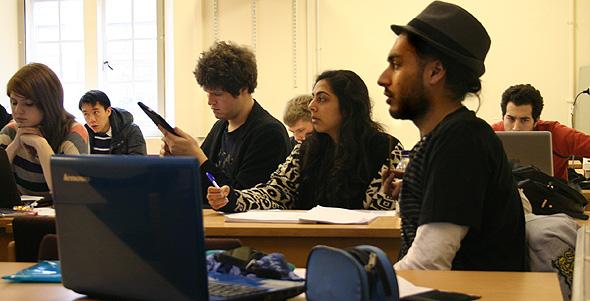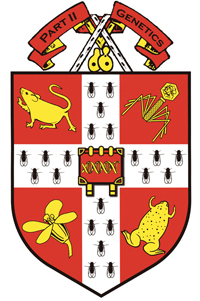
What is Genetics?
Genetics is the science of heredity: why you resemble your parents and other members of the human race, but also why you are recognisably different from them in many respects. Genetics attempts to understand not only how like begets like within a species, but also how and why differences between individuals and between species arise.
The Scope of Genetics
Genes carry the information which largely determines what you are and how you function in the environment. As we learn more about how genes work in different organisms, we find that this knowledge and understanding is fundamental to each and every area of biological study. Our increasing knowledge of the organisation and function of the human genome is having profound effects on the understanding and treatment of disease. Genetics helps us to understand evolution and speciation, and genetically engineered micro-organisms have the potential to be the industrial units of the future. Finally, genetics underpins most programmes in animal and plant breeding for agriculture, even the production of the much-maligned genetically-manipulated plants!
Genetics at Cambridge
Genetics forms an integral part of many first and second year courses in the Natural Sciences Tripos in Cambridge. Genetics is taught in the first year courses Biology of Cells and Evolution and Behaviour, and the basic knowledge required in these courses can be extended in the second year courses on Cell and Developmental Biology, Evoloution & Animal Diversity and Mathematical and Computational Biology. The Department also contributes to the teaching of the Molecules in Medical Science course in the Medical Science Tripos.
In the third year the Part II course in Genetics gives a broad education in all aspects of genetics, and how these relate not only to biological problems but also to many areas of human experience.
What this means in practice is that in order to study for an Undergraduate Degree in Genetics at the University of Cambridge, you should apply to a College to undertake the Natural Sciences Tripos, and ideally study some or all of the courses mentioned above in the first and second years, specialising in Genetics in your third year [Part II]. However, it is possible to approach the study of Genetics in Part II via other routes. Medical and Veterinary Sciences students can also elect to study Genetics in their third year.
Because applying to Cambridge is rather different than applying to most other universities, it is essential that you are well-informed about the procedures and deadline dates. More information can be found on the following web pages:
- University of Cambridge Undergraduate Admissions
This comprehensive website has links to all the information that you will need - Natural Sciences Tripos website
All you need to know about the components of the NST course - The Medical Sciences Tripos and Veterinary Sciences Tripos
All you need to know about the MVST
Part II Genetics
More detailed information about the third year undergraduate Genetics course can be found here.
What subjects do I need at A Level?
Minimum offer level: A level: A*A*A
To apply to any of our Colleges for Natural Sciences, you will need A levels/IB Higher Levels (or the equivalent) in:
- Mathematics
- 2 other science or mathematics subjects
Colleges may require you to achieve A*/7 in Chemistry and/or another science or mathematics subject.
Please note, ‘science/mathematics subjects’ refers to Biology, Chemistry, Physics, Mathematics and Further Mathematics. If you’re studying a science not listed above as your third subject, please contact the College you wish to apply to for advice. Some Colleges have specific requirements beyond the minimum offer level and subject requirements listed above.
College specific requirements: Biological Sciences
- Christ’s: Chemistry
- Churchill: A*/7 in Further Mathematics or Mathematics and A*/7 in Biology and/or Chemistry
- Corpus Christi: A* in Biology
- Emmanuel: Chemistry
- Jesus: A* in Biology
- Lucy Cavendish: A* in Mathematics and A* in Chemistry
- Pembroke: Biology
- Robinson: Biology
You should always check the Admissions Office website for up-to-date information.
If you are studying for qualifications other than A Levels, the relevant pages of the undergraduate prospectus, available to view on the web at http://www.undergraduate.study.cam.ac.uk/applying/entrance-requirements should help.

